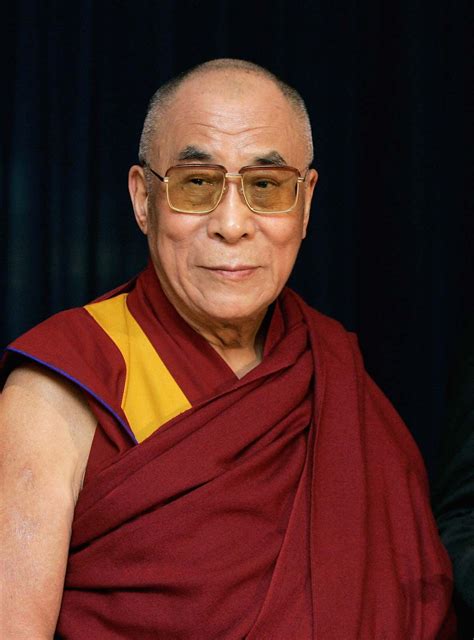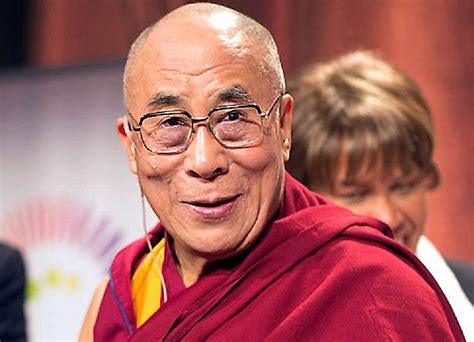Dalai Lama And Buddhism

His Holiness the Dalai Lama, a renowned spiritual leader and a symbol of peace and compassion, has captivated the world with his teachings and wisdom. With his profound understanding of Buddhism, he has inspired millions and brought attention to the ancient philosophy's relevance in the modern world. This article delves into the profound connection between the Dalai Lama and Buddhism, exploring their intertwined histories, the impact of his teachings, and the enduring legacy he continues to shape.
The Life and Legacy of the Dalai Lama

The current Dalai Lama, Tenzin Gyatso, was born in 1935 in a small village in Tibet. From a young age, he displayed exceptional spiritual prowess and was recognized as the reincarnation of his predecessor, the 13th Dalai Lama. The selection process, guided by intricate rituals and prophecies, led to his enthronement at the age of four. His early years were marked by a rigorous monastic education, mastering the intricacies of Buddhist philosophy and practice.
In 1950, at the tender age of 15, the Dalai Lama assumed political leadership of Tibet, facing the daunting challenge of navigating the region's delicate relationship with China. The following decade witnessed a tumultuous period, culminating in the Tibetan uprising and the Dalai Lama's subsequent exile to India in 1959. Despite these trying times, he emerged as a global symbol of resilience and peace, advocating for non-violence and dialogue.
Over the years, the Dalai Lama has dedicated his life to spreading the teachings of Buddhism and promoting universal compassion. He has authored numerous books, offering profound insights into Buddhist philosophy and its practical applications in daily life. His charismatic personality and unwavering commitment to peace have earned him widespread admiration and respect, leading to the award of the Nobel Peace Prize in 1989.
Buddhism: A Philosophy for All

Buddhism, one of the world’s oldest religions, originated in ancient India over 2,500 years ago. Founded by Siddhartha Gautama, known as the Buddha, it has since spread across Asia and beyond, gaining a global following. The core teachings of Buddhism revolve around the Four Noble Truths, which offer profound insights into the nature of suffering and the path to liberation.
The Four Noble Truths, as taught by the Buddha, are:
- The Truth of Suffering (Dukkha): Recognizing that life is inherently filled with suffering, from birth to aging, sickness, and death.
- The Truth of the Origin of Suffering (Samudaya): Understanding that suffering arises from attachment and craving.
- The Truth of the Cessation of Suffering (Nirodha): Realization that suffering can be ended by overcoming attachment and attaining a state of liberation.
- The Truth of the Path Leading to the Cessation of Suffering (Magga): Following the Noble Eightfold Path, a practical guide to ending suffering and attaining enlightenment.
The Noble Eightfold Path, a key component of Buddhist practice, consists of eight interconnected factors:
- Right View: Understanding the nature of reality and the law of karma.
- Right Intention: Cultivating wholesome intentions, free from greed, hatred, and delusion.
- Right Speech: Speaking truthfully, kindly, and with restraint.
- Right Action: Acting ethically, avoiding harmful actions like killing, stealing, and sexual misconduct.
- Right Livelihood: Engaging in occupations that benefit society and do not harm others.
- Right Effort: Cultivating positive mental states and overcoming unwholesome ones.
- Right Mindfulness: Developing awareness and presence of mind in all activities.
- Right Concentration: Practicing meditation to achieve a calm and focused mind.
The Dalai Lama's Impact on Buddhism
The Dalai Lama's influence on Buddhism extends far beyond his spiritual leadership. He has played a pivotal role in bringing Buddhist teachings to the global stage, making them accessible and relevant to modern audiences. Through his engaging lectures, books, and public appearances, he has demystified complex philosophical concepts, presenting them in a clear and relatable manner.
One of the key aspects of the Dalai Lama's teachings is his emphasis on the universal nature of compassion. He argues that compassion is a fundamental human quality, inherent in all beings, and that cultivating it is essential for personal well-being and societal harmony. His message resonates with people from diverse backgrounds, offering a practical guide to living a more compassionate and fulfilling life.
The Dalai Lama's contributions to Buddhism also extend to the realm of science and academia. He has actively engaged with scientists, scholars, and researchers, exploring the intersection of Buddhism and modern science. Through his involvement in initiatives like the Mind and Life Institute, he has fostered a deeper understanding of the mind, consciousness, and the potential benefits of meditation practices.
| Dalai Lama's Teachings | Impact |
|---|---|
| Emphasis on Compassion | Inspired global compassion movements and initiatives. |
| Meditation and Mindfulness | Popularized mindfulness practices in the West, benefiting mental health. |
| Interfaith Dialogue | Promoted understanding and cooperation among different religious traditions. |
| Non-Violence and Peace | Inspired peaceful movements and leaders, advocating for non-violent solutions. |

Dalai Lama’s Global Influence
The Dalai Lama’s global travels and teachings have left an indelible mark on countless individuals and communities. His presence has sparked curiosity and interest in Buddhism, leading to the establishment of Buddhist centers and communities worldwide. Moreover, his message of compassion and peace has resonated with leaders and activists, influencing social and political movements advocating for justice and human rights.
In recent years, the Dalai Lama has actively promoted interfaith dialogue, emphasizing the importance of mutual respect and understanding among different religious traditions. His efforts have fostered greater cooperation and collaboration, dispelling misconceptions and promoting peace and harmony.
The Future of Buddhism and the Dalai Lama’s Legacy
As the Dalai Lama enters his 90s, the question of his successor and the future of Tibetan Buddhism looms large. The Chinese government’s involvement in the selection process has raised concerns and controversies, with the Dalai Lama himself expressing his desire for a democratic and transparent process.
Despite these challenges, the Dalai Lama's legacy remains firmly established. His teachings and writings continue to guide and inspire millions, offering a path to spiritual growth and inner peace. The institutions he has established, such as the Dalai Lama Trust and the Tibetan government-in-exile, ensure the continuity of his work and the preservation of Tibetan culture and Buddhism.
The future of Buddhism is also shaped by the growing interest in mindfulness and meditation practices. With scientific research backing their benefits, these practices have gained mainstream acceptance, leading to their integration into various fields, including healthcare, education, and business.
What is the Dalai Lama’s view on death and reincarnation?
+The Dalai Lama believes in the concept of reincarnation, where a being’s consciousness is reborn into a new body after death. He sees death as a natural part of the cycle of life and views reincarnation as an opportunity for spiritual growth and learning.
How has the Dalai Lama’s exile affected Tibetan Buddhism’s global spread?
+The Dalai Lama’s exile has played a significant role in spreading Tibetan Buddhism globally. His presence and teachings outside Tibet have inspired and attracted followers worldwide, leading to the establishment of numerous Buddhist centers and communities outside Tibet.
What are some key differences between Tibetan Buddhism and other Buddhist traditions?
+Tibetan Buddhism, also known as Vajrayana Buddhism, is unique in its emphasis on tantric practices and the use of rituals and mantras. It also incorporates elements of Bon, the indigenous religion of Tibet, resulting in a rich and diverse tradition.


